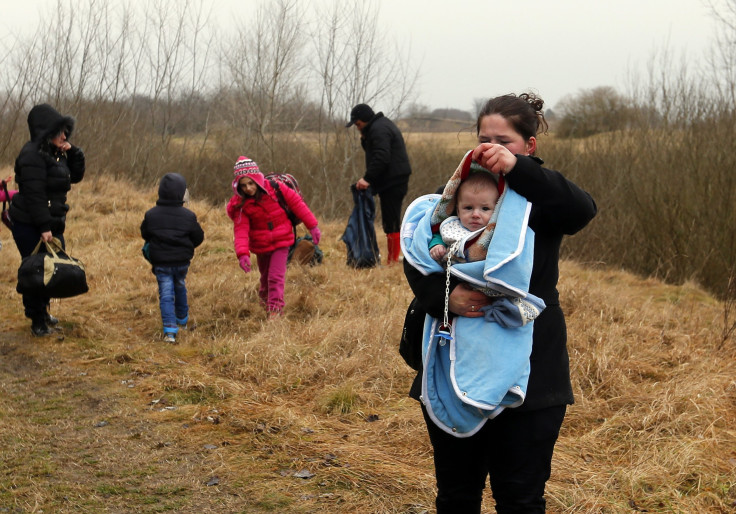Serbia Border Crisis: Germany Sends Police To Stem Kosovo Refugees Seeking Asylum In European Union

Germany will assign 20 of its police officers to the Hungary-Serbia border to stem the flow of asylum-seekers who are fleeing Kosovo in droves to find economic sanctuary in the European Union, the German Interior Ministry said Thursday. Thousands of Kosovars have left their homeland’s unemployment and poverty and attempted to smuggle their way into EU, primarily to Germany and its vibrant economy.
A recent change to travel rules allowed citizens of Kosovo easier access to the EU by way of Serbia, according to Reuters. Approximately 10,000 refugees sought asylum in Hungary in January, with many moving on to Germany to apply for welfare benefits.
“To ensure the long-term stability of Kosovo and the whole region and to guarantee … protection and acceptance among the population for those who are politically persecuted..., we have taken a range of measures,” Germany’s Interior Ministry said in a statement.
Frontex, the EU’s border guard service, will also increase its presence in the region. In addition to sending the 20 police officers, Germany will help with unspecified measures to strengthen border security. German authorities approved just 0.3 percent of asylum applicantions that originated in Kosovo last month, but the number of Kosovar refugees still increased by 86 percent.
Citizens of Kosovo have lived in abject poverty since the nation gained independence from Serbia in 2008. One-third of the country’s approximately 1.8 million citizens are without jobs, with 40 percent below the poverty threshold, according to Agence France-Presse. As a result, smuggling networks have arisen throughout the area to charge would-be migrants for illicit entrance into the EU.
Hungary detained nearly 8,000 illegal immigrants last week, according to Hungarian police. In total, border police have apprehended approximately 30,000 asylum-seekers since last September, compared to just 6,000 in 2013. Increased illegal immigration prompted a top Hungarian politician to declare the nation should “shut its gates” to economic refugees.
"We think this is extremely worrisome and therefore the Fidesz-KDNP party parliamentary group expressed it very clearly to the government that Hungary's gates must be shut to economic immigrants," said Antal Rogan, a top politician in Prime Minister Viktor Orban’s Fidesz party, according to Reuters.
© Copyright IBTimes 2024. All rights reserved.






















